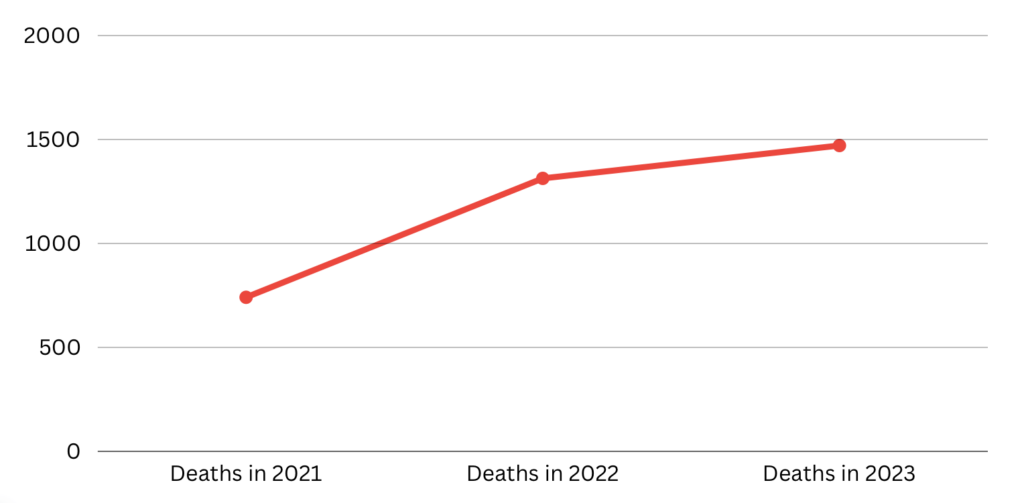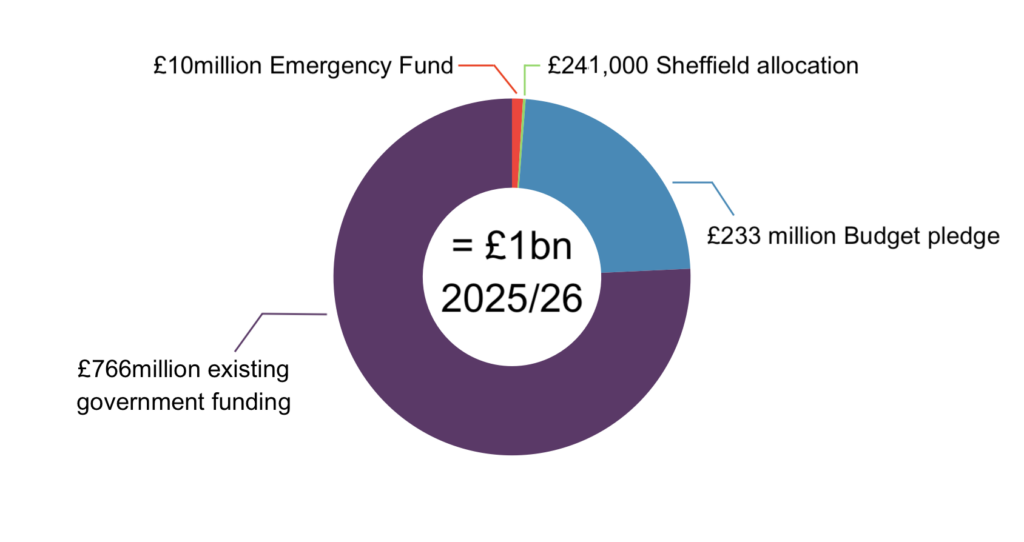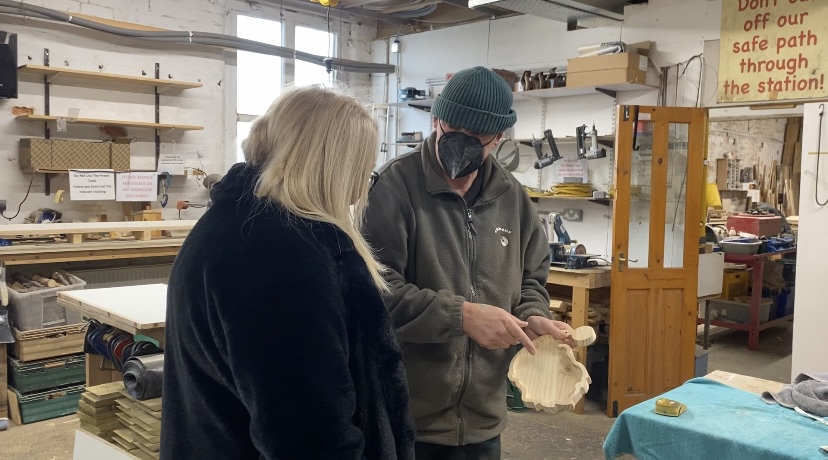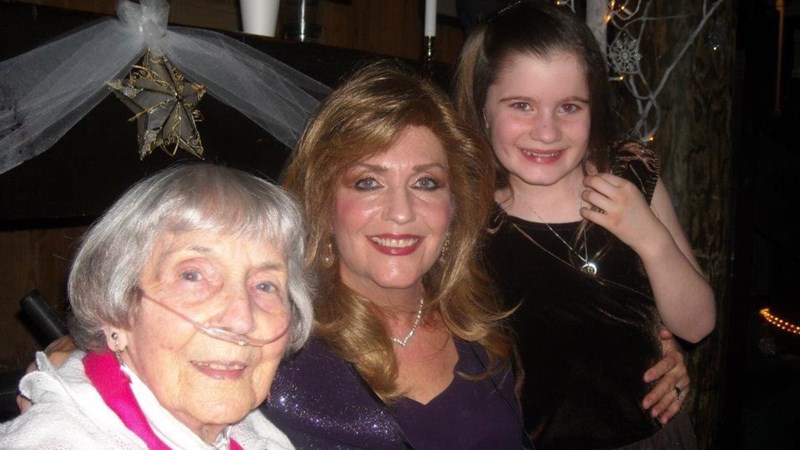Sheffield’s homeless charities are at breaking point as they constantly battle to help the increasing number of people who are sleeping on the streets.
Temperatures across the city plummeted last week marking the first snowfall of the season, triggering Sheffield’s Severe Weather Protocol (SWEP). But the Lord Mayor of Sheffield Jayne Dunn believes the “rain is just as important as the cold” and more needs to be done to help homeless people battling against other extreme weather conditions.
“What we do need is wrap around support for personalised aid for homeless people. It works but it’s very very expensive, what we need is long term funding,”
– CLLR DUNN
SWEP is launched when temperatures reach -2°C for three consecutive hours. Under this protocol, emergency accommodation is provided as a temporary solution for people tackling homelessness this winter.
The Mayor has emphasised that homelessness isn’t just about surviving extreme temperatures until SWEP is activated. Rain and wind chill, which aren’t factored into weather protocols, are the real dangers to people sleeping rough.
She says: “Rain is just as important as the cold, it’s not something we should only be thinking about when it snows, we should be thinking about it all the time.”
Cllr Dunn advocates for personalised support for people experiencing homelessness to bring Sheffield’s rising homelessness figures down for good.
She supports The Archer Project, a Sheffield homeless charity, and their year-round approach to tackling the homelessness crisis. The organisation works on the frontline to provide emergency, trauma-informed services to help those people who are sleeping rough all year round.
Joe Logan, Fundraising Officer for the charity, says the dangers of all extreme weather conditions, not just cold, are amplified for the homeless.”
“Dehydration, sunstroke, severe sunburn, everything that people are told to think about when the sun comes out is double, triple for people experiencing homelessness.”
– Joe Logan
Unfortunately, the charity is at its breaking point and cannot cope with the rise in demand. CEO, Tim Renshaw, told the BBC: “We used to just about cope cooking 15,000 meals a year. We’re expecting to cook 28,000 this year.”
On November 6, Deputy Prime Minister Angela Rayner announced a £10m emergency fund aimed at preventing deaths of those sleeping rough this winter.

A shocking 1474 people died due to homelessness in 2023 alone, a 42% increase from the previous year and double the recorded deaths in 2022.
Yorkshire and The Humber are set to receive more than £1m of the finances to help 16 of its most vulnerable areas, with £240,000 allocated to Sheffield.
Homelessness is an escalating problem in the city, where more than 4000 families and people reported they were homeless in 2023.
During the emergency announcement, Deputy Prime Minister Angela Rayner described the crisis as “a national disgrace, and we can’t keep sticking plasters on it”.
Chancellor Rachel Reeves’ Budget also announced a further £233m dedicated to homeless services from April 2025.

This pledge, the emergency fund, and existing government financial plans brings the budget for tackling homelessness and investing in services with a budget of £1bn for 2025/26.
Emmaus Sheffield provides supported accommodation, personalised support and training schemes to help homeless people regain their identity and independence.
The charity, which aims to provide a home for however long a person needs it, runs 33 projects in the UK and has 425 sites worldwide.
When Emmaus Sheffield first opened in 2007, it had five bedrooms, today it accommodates 18 people. To cope with the rising demand, they hope to build four additional bedrooms and a bigger kitchen.
Unfortunately, people who have been referred to the charity’s site are often kept on a waiting list for nearly six months.
“We very rarely have vacancies. It’s not really a winter crisis,” says Lesley Morgan, community leader of the Sheffield branch. “It’s just constant, it’s not just a winter thing for us, it’s every month of the year. We are full from January through to December.”
Emmaus’ year-round, wrap-around support increases the likelihood of its residents finding a job and moving on from the project.
The charity has a dedicated workshop on-site that provides carpentry training to its residents. Their work is then put up for sale on-site and at local markets.

The residents are also offered gym memberships and driving lessons to help with their rehabilitation and increase their employability.
But when the residents of the charity are ready to live independently, they often struggle to find social housing.
“There is a massive problem, when someone is ready to move out, we can’t actually find them affordable housing, so they’re turning jobs away because they’ve got nowhere they can afford to live,” says Lesley.
Emmaus and The Archer Project’s year-round commitments to rehabilitation and support are being undermined by the lack of social housing for people emerging from homelessness.
Joe Logan, of the Archer Project, blames failings in social policy. He says: “There needs to be a recognising of the surrounding contributing factors to people experiencing homelessness.”
To fight this crisis, the city’s leading charities are working tirelessly on ensuring that the fight against homelessness is not a seasonal effort.




